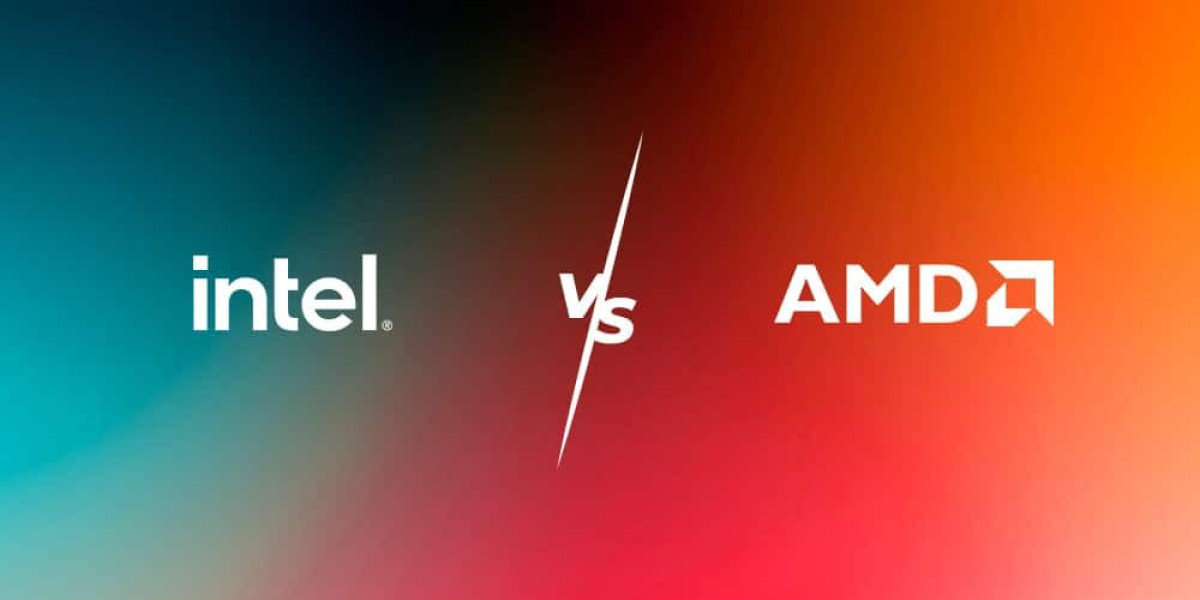When choosing a laptop, one of the pivotal decisions you’ll face is whether to go with an Intel or AMD processor. Both brands have their strengths, catering to different needs and preferences. In this blog, we’ll delve into a comprehensive comparison between Intel vs AMD laptops, examining key aspects to help you make an informed decision.
On the other hand, AMD offers superior multi-core performance and a better price-to-performance ratio, making it a compelling option for budget-conscious buyers and those who need robust multitasking capabilities. Understanding the strengths and weaknesses of each can help you select the laptop that best fits your computing needs and preferences.
1. Performance
Intel Laptops:
- High Clock Speeds: Intel processors are renowned for their high clock speeds, which can translate to superior performance in single-threaded applications. This is especially beneficial for tasks such as gaming or software development that rely heavily on single-core performance.
- Integrated Graphics: Intel’s integrated graphics have improved significantly in recent years. Their Iris Xe Graphics, for instance, offer decent performance for casual gaming and multimedia tasks, reducing the need for a discrete GPU in certain scenarios.
AMD Laptops:
- Multi-Core Performance: AMD’s Ryzen processors are celebrated for their strong multi-core performance, making them particularly well-suited for multitasking, content creation, and applications that utilize multiple threads. This can lead to smoother performance in demanding tasks and applications.
- Integrated Graphics: AMD’s Ryzen processors with Radeon Graphics deliver competitive performance in integrated graphics. This is often superior to Intel’s offerings in the same price range, making AMD a solid choice for users who want robust performance without a dedicated GPU.
2. Power Efficiency
Intel Laptops:
- Battery Life: Intel processors are known for their efficient power consumption. This efficiency often results in longer battery life for laptops, which is especially advantageous for ultrabooks and lightweight laptops designed for on-the-go use.
AMD Laptops:
- Power Consumption: AMD’s newer Ryzen processors have made significant strides in power efficiency. However, they might still lag slightly behind Intel in this aspect. Despite this, AMD’s advancements are rapidly closing the gap, and many new models offer competitive battery life.
3. Price-to-Performance Ratio
Intel Laptops:
- Premium Pricing: Intel processors often come at a higher price point. While they provide solid performance and reliability, the cost can be a factor, particularly if you’re looking for high performance without stretching your budget.
AMD Laptops:
- Cost-Effective: AMD laptops typically offer a better price-to-performance ratio. Ryzen processors deliver competitive performance at a more affordable price, making them an excellent choice for budget-conscious consumers who still want powerful computing capabilities.
4. Heat and Noise Management
Intel Laptops:
- Thermal Management: Intel processors generally have effective thermal management. This helps in maintaining lower temperatures and quieter operation, which can enhance the overall user experience, especially during extended use.
AMD Laptops:
- Thermal Output: AMD laptops can sometimes run hotter, particularly under heavy workloads. However, many modern AMD laptops come equipped with advanced cooling solutions designed to address this issue, ensuring better heat management and quieter operation.
5. Future-Proofing and Upgradability
Intel Laptops:
- Long-Term Support: Intel’s processors are known for their stability and long-term support. This can be advantageous if you plan to use your laptop for several years, as Intel consistently provides updates and support for their CPUs.
AMD Laptops:
- Upgradability: AMD’s recent processors support the latest technologies and standards, which can make them more future-proof. AMD’s commitment to supporting their CPU sockets for multiple generations also enhances upgradability, allowing users to upgrade their CPUs without needing a new motherboard.
6. Software and Compatibility
Intel Laptops:
- Broad Software Compatibility: Intel processors benefit from extensive software compatibility and optimization. This broad support ensures that most applications and games run smoothly on Intel-powered laptops, offering a reliable and consistent user experience.
AMD Laptops:
- Growing Support: AMD processors have seen increasing support from software developers. Although AMD may not yet match Intel’s level of optimization for all applications, the gap is narrowing, and many modern applications are well-optimized for AMD hardware.
Conclusion
Choosing between Intel and AMD laptops depends on your specific needs and priorities. Intel excels in single-threaded performance and battery life, making it a strong choice for users who prioritize these aspects. On the other hand, AMD offers superior multi-core performance and a better price-to-performance ratio, making it a compelling option for budget-conscious buyers and those who need robust multitasking capabilities. Understanding the strengths and weaknesses of each can help you select the laptop that best fits your computing needs and preferences.
Both brands have their strengths, catering to different needs and preferences. In this blog, we’ll delve into a comprehensive comparison between Intel and AMD laptops, examining key aspects to help you make an informed decision.







